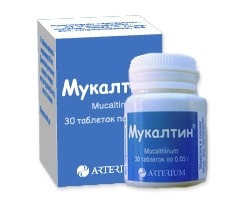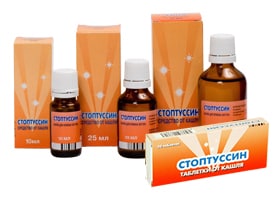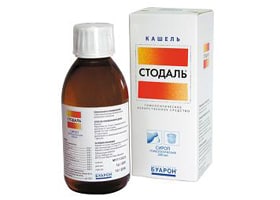One of the most common questions of visiting future parents is the question of what can pregnant women from coughing. During pregnancy, the female body independently reduces the protective functions of the immune system. Such a physiological reaction is due to the need to reduce the likelihood of rejection of the fetus, as a foreign body in the body of the expectant mother. At the same time, such a change makes the female body less resistant to the effects of pathogenic microflora and infectious diseases.
What is dangerous and why can not be treated with conventional cough medicine during pregnancy?
Forced frequent visits to the doctor at the clinic, reduced immunity and the influence of seasonal diseases can instantly worsen the condition of the pregnant woman and cause the development of a cold and, as a result, a cough. And in order to recover without harming yourself and the unborn baby, you will need to make every effort.
The off-season periods are the most dangerous, because it is during this period that colds, SARS, influenza and bronchitis most often develop. At the same time, all these ailments are united by one dangerous symptom - a cough. In order to avoid the development of serious health problems during pregnancy, treatment should be carried out correctly and in a timely manner. In the first weeks of pregnancy, the immune system becomes blunted and the body is more susceptible to infection by infections in public places visited by the pregnant woman, as well as due to possible hypothermia.
Such factors can adversely affect the unborn baby, especially when infected with a cold in the first trimester. It is in the first months that the internal organs, the nervous system, and the brain are laid in the fetus. In the future, the fetus will be protected by the placenta and less susceptible to infections that the expectant mother suffers. But at a later date, colds can lead to a violation of the development of the endocrine system, the musculoskeletal system, the reproductive system (if a girl is expected), and also lead to premature birth.
The placenta does not protect the fetus from infections throughout the entire period of pregnancy, because by the end of pregnancy, in the third trimester, it is aging and cannot fully protect the imperfect immune system of the unborn baby from the effects of infections. In addition, there is a great danger of the onset of premature birth during a cold.
Cough, as the very first symptom of colds, can be a serious danger for a pregnant woman. During an attack, the abdominal walls and muscles of the uterus tense up, which, with a prolonged and severe cough, can lead to the development of increased tone. In the first months of pregnancy, this condition can lead to a threat of miscarriage, and in later months - premature birth.
The increased tone of the uterus reduces blood circulation in the reproductive organs, which leads to a decrease in the supply of oxygen and nutrients to the fetus. As a result, hypoxia of intrauterine development occurs. Dry cough, with frequent bouts, can lead to placental abruption, increased blood pressure.
Such a manifestation is a symptom, therefore, it can accompany various ailments that provoke its development. It could be:
- SARS;
- flu;
- pneumonia;
- bronchitis;
- inflammatory processes in the ear;
- stomach diseases;
- dysfunction of the thyroid gland;
- due to nervous tension;
- allergy.
Each disease can cause significant harm to both the mother and the unborn child.
For this reason, when the first symptoms appear, it is necessary to consult your doctor, who will prescribe the correct therapy.
What can pregnant women from cough - dry and wet
The main rule for the treatment of pregnant women is the absence of harm to the unborn child. With the first signs of a cold and the onset of a sore throat and easy coughing, you need to visit a doctor, because only a specialist can prescribe a harmless and effective medicine.
The main goal of therapy in such cases is to alleviate the condition and get rid of the source of infection in the body. With a common cold, or SARS, you can allow the body to recover on its own, resorting to methods from traditional medicine. Medicinal infusions, plentiful drink, honey and other means.
They also do an excellent job with coughing fits of inhalation with a nebulizer. If a serious disease develops, which is accompanied by a deterioration in the general condition, tearing dry or debilitating wet cough, then the use of medications will be required.
Cough syrup
For the treatment of cough during pregnancy, it is recommended that you first seek qualified help from your doctor in order to make an accurate diagnosis. Only a specialist can prescribe an effective and safe drug that can be used during pregnancy.
The most common means for therapy are syrups, and women who are expecting a baby should especially pay attention to herbal preparations. To get rid of dry cough use:
- Herbion with plantain extract - envelops the mucous membranes of the larynx, soothes irritation, relieves inflammation, has an antiseptic and bactericidal effect;
- Doctor Mom - stimulates the formation of a bronchodilator secretion, and its discharge, has an anti-inflammatory and mucolytic effect;
- Stodal - stimulates the transition of a dry cough into a wet one, helps to thin the sputum and remove it.
Wet cough will help relieve and cure drugs with a safe composition:
- Herbion with ivy and primrose extract - dilutes sputum, stimulates its discharge;
- Althea root syrup - has an enveloping effect on the mucous membranes of the respiratory system, facilitating and stimulating the excretion of sputum. Before starting use, a doctor's consultation is necessary, since during pregnancy it is taken only in difficult cases.
Since most cough syrups contain ethanol, their use should only be prescribed by the attending physician. Do not self-medicate, in order to avoid deterioration of the condition.
Cough tablets
Cough during pregnancy is quite dangerous in many respects, so it must be treated. But unfortunately, most tablet preparations are prohibited for use at all gestational ages, as they can cause complications during pregnancy and adversely affect the health of the fetus. At the same time, there is still a small list of pills that expectant mothers can take with a dry cough:

To facilitate the discharge of sputum with a wet cough during pregnancy, Stoptussin is used (from the 14th week) - it reduces the viscosity of sputum, stimulates its discharge, and has a mild analgesic effect.
Lollipops and lozenges
The most common medicines to combat colds during pregnancy are lozenges and lozenges. They are prescribed much more often than tablets and syrups, because the medicinal components have a local effect without being absorbed into the blood, and therefore without affecting the fetus.
During pregnancy, you can be treated using:
- Lozenges with sage extract - have an expectorant, anti-inflammatory and analgesic effect. Lozenges dissolve in the mouth, providing an immediate reduction in coughing;
- Travisil lozenges - consist of plant components, has expectorant, disinfecting, immunomodulatory effects;
- Bobs lozenges are available in different flavors (wild berries, honey, lemon, eucalyptus, mint or green tea), while providing a high therapeutic effect due to the content of a large amount of vitamin C, eucalyptus, menthol, sugar and other ingredients that soften the mucous membranes. Lozenges reduce sore throat, anesthetize and alleviate the condition;
- Lozenges Dr. Theiss - have a safe composition, so they are prescribed as an additional drug in the fight against wet cough.
- Linkas - lozenges stimulate sputum thinning and its excretion, reduce unproductive cough, facilitate breathing, eliminate irritation of the mucous membranes of the respiratory tract.
Regardless of the type of medication chosen, the benefits of treatment must be weighed against the likely complications it may entail. You should not choose drugs on your own, but entrust this process to a specialist.
How to treat cough during pregnancy
During pregnancy, every woman is much more attentive to her health, doing everything possible to protect her body from colds. This does not always work out, because there are many different negative factors that contribute to the onset of the disease.
At the first signs of the development of a cold, a woman during pregnancy should definitely contact her doctor (therapist and obstetrician-gynecologist). It is not allowed to take cough medicines without a doctor's prescription, since many medicines are contraindicated during pregnancy and can lead to serious abnormalities in the development of the fetus and even cause miscarriage or premature birth.
After examining a pregnant woman, the doctor will prescribe a drug that is allowed for use at a specific gestational age:
1st trimester
In the first trimester, and this is up to 12 weeks, it is not recommended to use medications. This is due to the fact that during this period in the body of the fetus, the laying and formation of vital organs, such as the nervous system, brain, heart and others, takes place. At the same time, the use of medicines at such a crucial moment can provoke deviations and pathologies in the development of the unborn baby.
For this reason, in the first months of pregnancy, it is recommended to resort to non-drug therapy, that is, to use alternative methods of treatment.
Excellent help to get rid of cough inhalation with the use of medicinal herbs. With a dry cough, linden is used, and with a wet one, yarrow, string and wild rosemary can be used.
At the same time, it is worth paying attention that it is unacceptable to abuse herbal treatment during pregnancy. Any type of therapy should be carried out only under the supervision of the attending physician. For inhalation procedures, a nebulizer is used, which is a special apparatus, or replace it with a deep container. The composition of medicinal fees and proportions should be prescribed only by a doctor.
Also, medicinal herbs can be used as raw materials for the preparation of antitussive decoctions, infusions and teas.
In the case when the cough is strong and causes significant discomfort, the use of medications, such as Stodal Syrup or Mukaltin tablets, will be required. A more specific list of permitted medications will be prescribed by the attending physician, depending on the type and nature of the cough.
2nd trimester
 For the treatment of cough in the second trimester, it is desirable to use preparations with herbal ingredients. Such funds are available in the form of syrups, tablets, lozenges or lozenges. The most common drugs that are allowed during pregnancy are:
For the treatment of cough in the second trimester, it is desirable to use preparations with herbal ingredients. Such funds are available in the form of syrups, tablets, lozenges or lozenges. The most common drugs that are allowed during pregnancy are:
- Stoptussin;
- Mukaltin;
- Linkas;
- Lazolvan.
Despite the relatively safe composition, these drugs should be taken with caution during pregnancy, as well as other medicines.
It is forbidden to use drugs containing thermopsis grass, as well as codeine, as antitussive drugs. These drugs do not cross the placenta and do not directly harm the unborn child, but they can provoke an increase in the tone of the uterus and cause a miscarriage.
If the usual methods of treatment are ineffective, the doctor may prescribe antibacterial drugs, since in the second trimester they no longer penetrate the placenta and do not affect the fetus. But there are some types of funds that are quite aggressive and can negatively affect the condition of the expectant mother and her baby. Therefore, all appointments should come only from a doctor, and dosages should not be exceeded.
In the initial stage of the development of the disease and at the first bouts of coughing, increased gargling will help to alleviate the condition. For this, antiseptic agents are used, for example:
- furacilin solution;
- chlorophyllipt;
- soda solution.
You can also use sprays to relieve the condition, such as:
- Ingalipt;
- Ingacamf;
- Lugol.
The entire therapeutic course should be controlled by the attending physician, who is obliged to monitor the condition of the pregnant woman, conduct clinical blood tests to determine the effectiveness of the treatment and the need for further treatment. It must be remembered that the use of certain foods can affect the absorption of drugs. So orange juice can enhance the effects of antibiotics, while milk reduces their effectiveness.
3rd trimester
 Any deterioration in the health of a pregnant woman negatively affects both her well-being and the condition of the baby. For this reason, it is necessary to eliminate all manifestations of diseases at the very beginning, not allowing the disease to develop.
Any deterioration in the health of a pregnant woman negatively affects both her well-being and the condition of the baby. For this reason, it is necessary to eliminate all manifestations of diseases at the very beginning, not allowing the disease to develop.
The most dangerous manifestation of colds and infectious diseases is a cough.
It is not allowed to use the usual medications as therapy during pregnancy. They can adversely affect the condition of the unborn baby, so a doctor's consultation in such a situation is required. With a dry cough, the doctor may prescribe mild drugs:
- Stoptussin (not recommended for more than 5 days);
- Stodal;
- Libexin (used only for severe cough).
Attacks of wet coughing are removed with preparations with herbal ingredients:
- Mukaltn;
- Bromhexine;
- Herbion.
Drinking plenty of water, airing the room and walking in the fresh air are also effective.
Contraindications and precautions
During pregnancy, it is forbidden to use many medicines, as well as therapy methods. Prohibited drugs for the treatment of cough during pregnancy are:
- Travisil;
- Joset;
- Ascoril;
- Pertussin;
- Grippex;
- Codelac.

In addition, the following are not allowed:
- mustard plasters and cans;
- abuse the intake of vitamin C;
- hot baths, you can not soar legs;
- physiotherapy and UHF therapy.
Many medicinal plants that are used in traditional medicine recipes can adversely affect the body of a pregnant woman and even provoke an abortion. It is not allowed to use infusions, decoctions and teas prepared from:
- hypericum;
- chamomile;
- licorice;
- thermopsis;
- thyme (thyme);
- sage;
- claspers and others.
If the cough is very strong?
In a situation where a cold is accompanied by a severe debilitating cough, it is urgent to consult your doctor. Since an attack can be a symptom of various diseases, only a specialist can prescribe the right treatment. When a pregnant woman is contacted, the doctor prescribes, first of all, a series of laboratory tests to determine the cause of the problem, and only based on the data of the obtained tests and the collected history will make the correct prescription of medications.
If nothing helps?
Most pregnant women do not understand the seriousness of the development of diseases accompanied by a cough. Therefore, timely treatment is not carried out, which leads to complications.
In the event that no method of treating the disease helps, and the medicines prescribed by the doctor do not work, you will need to re-apply to a specialist to correct therapy.
 The doctor may recommend the use of drugs with a more aggressive effect, antibiotics, as well as maintenance (complex therapy). Only in this case will it be possible to effectively cure a cough without serious consequences for the expectant mother and her fetus.
The doctor may recommend the use of drugs with a more aggressive effect, antibiotics, as well as maintenance (complex therapy). Only in this case will it be possible to effectively cure a cough without serious consequences for the expectant mother and her fetus.
What to do with an allergic cough?
As a rule, an allergic attack occurs spontaneously and also passes. It can be both dry and with sputum discharge in small quantities. For the treatment of allergic cough, antihistamines are usually prescribed, but they are prohibited during pregnancy, as they affect the hormonal background and can cause problems in the development of the fetus. This is another reason to visit a doctor.
Allergy as such is not treatable, and all antiallergic therapy is aimed at stopping attacks. Since it is unacceptable to use the usual means during pregnancy, you can resort to secondary methods of alleviating the condition. If the cause of the allergy is known, that is, an allergen is identified, then it is necessary to limit the contact of the expectant mother with this allergen. It will also be useful to wash the mucous membranes of the nasopharynx with saline, or to bury the nose with special drops:
- Nosol;
- Akramaris;
- Salin.
Also, to relieve cough and reduce its aggressiveness, you can use a nebulizer for inhalation with ordinary mineral water, which perfectly moisturizes the mucous membranes of the larynx and bronchi, relieving attacks.



